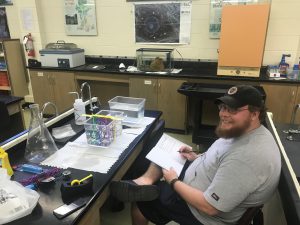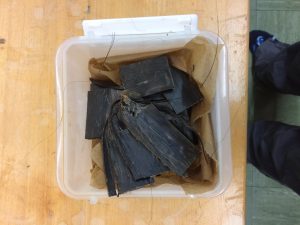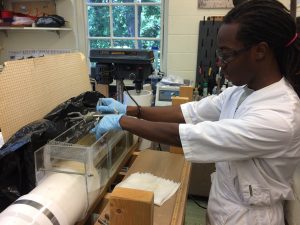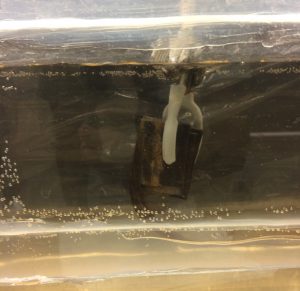By Mark Mason ’18
For my summer research project I am working with Drs. Alex Werth and Stan Cheyne from the Biology and Physics departments, respectively, to try and determine the factors that cause an unusual fish behavior. This behavior was first noticed when scientists observed humpback whales using bubbles to corral baitfish together near the surface, making them easier to catch, in a hunting strategy called bubble netting. Many studies have been done on the behavior of the whales and how they coordinate this unusual hunting strategy but there haven’t been any studies looking into why it works. This is why I will be using small fish and various tanks and aquarium bubblers to try and figure out why the fish don’t want to swim through the bubbles.
Eventually I will use the five hundred gallon tank in the physics department that Dr. Cheyne uses for his bubble research to try and replicate this phenomena. Early results in small freshwater tanks using zebrafish, a small species of minnow like fish, are promising and have proven that this is something that can be replicated in the lab.
By Shemar Blakeney ‘18
This summer, I am working with Professor Werth to examine the effects of oil on baleen plates. During these experiments, we will be analyzing the compression and tension of the baleen plates. Also, we will be using a flow tank to study the filtration system of baleen. With another version of the flow tank, we will test how the oil will affect the filtration system of the baleen plates. This research will benefit many baleen whales if an oil spill were to occur.
This research will benefit me in the future because I plan on obtaining my Ph.D. in Marine Biology and becoming a cetologist to study killer whales. The research I am doing is priceless to me.




